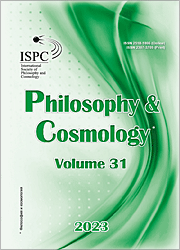The World of Corporate Culture: Ontological, Anthropological and Organizational Models
The World of Corporate Culture: Ontological, Anthropological and Organizational Models
Author(s): Leonid Hubersky, Yevheniia Viktorivna LevcheniukSubject(s): Management and complex organizations, Sociology of Culture, Migration Studies, Globalization, Ontology
Published by: Международное философско-космологическое общество
Keywords: Culture; corporate culture; organization; tolerance; social partnership; globalization processes; migration processes;
Summary/Abstract: The article examines the peculiarities of corporate culture formation and development in the modern stage of societal development, which is characterized by high levels of dynamism and conflict. It has been said that culture is something created by Man just as Man is the creation of culture, because culture influences behavior in a person from the beginning of their socialization through the assimilation of norms, values, models of behavior, etc. A person implements all of these in various types of relationships which, in turn, develop structures, organizations, and all individuals, in particular. Corporate culture becomes the basis for the development of organizations at various levels through the application of management theory, especially when considering the current state of international, intercultural relations caused by globalization and migration processes. Corporate culture plays a particularly important role in ensuring the progressive development of science and education, and in preserving the intellectual potential of the state in conditions of social contradiction and military conflict. The development of corporate culture is based on such principles as tolerance, equality and partnership, which are embodied in the relations of any organization, corporation, etc. It has been shown that culture always involves some kind of change, and through such change, corporate culture can act as the criterion that will ensure a group’s integrity under the pressure of external challenges and act as the measure of the internal stability of any team that has determined its goals, tasks and the purpose of its development and the effective implementation of its values and beliefs.
Journal: Philosophy and Cosmology
- Issue Year: 31/2023
- Issue No: 31
- Page Range: 37-44
- Page Count: 8
- Language: English

